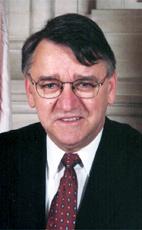Mr. Speaker, on Sunday as I was waiting for my flight at the Montreal airport, I happened to meet soldiers who were on their way back from Afghanistan for a three-week break at home. One of them was Daniel Dupuis, from the Gaspé and the other Ben Gale, from Cape Breton. Daniel phoned home and his little girl Marie-Christine said, “Daddy, I put on my pretty dress to come meet you at the Quebec City airport later”, and Daniel, this brave solider, had tears in his eyes.
Two hours later when I arrived in Ottawa on the same flight as Ben, I saw him on the floor with his two and a half year old son in his arms and I saw his less than six month old baby in mother's arms. This was the first time this family had been together in many weeks because of the father's service in Afghanistan.
That is when it became very clear to me what sacrifices military families make when their loved ones serve abroad in the name of peace and the fight against terrorism, just as these brave soldiers are doing.
On behalf of my colleagues in this House, I thank these soldiers and today I also thank their families for the sacrifices they make that far too often go unrecognized. I also thank the nearly 1,900 Canadian soldiers who are deployed to Afghanistan.
Thank you to all these service men and women and their families.

